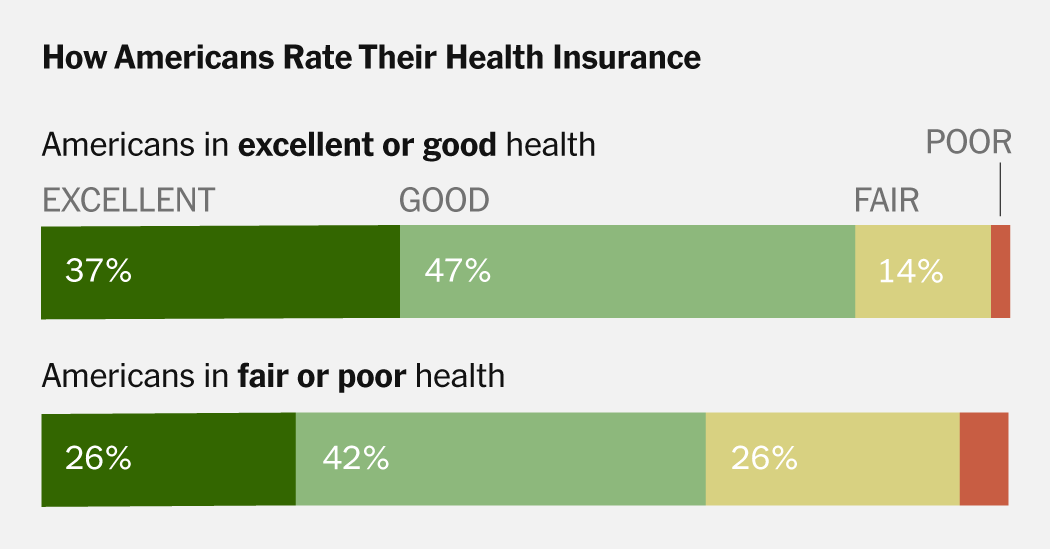Americans voted last month in an election that polls showed was largely about the economy. Less than 1 percent of likely voters ranked health care as their top issue.
Now, health care, and in particular the health insurance industry, is suddenly a big topic of debate. After the killing of UnitedHealthcare’s chief executive, Brian Thompson, social media posts that cast him as a villain or expressed support for the gunman signaled to some a strong sense of dissatisfaction with the U.S. health insurance system.
Public polls, which can provide a broader sample of Americans’ views than the echo chambers of social media, also show that many people have experienced problems with their insurance coverage. But they also suggest that Americans’ overall opinions on the industry are nuanced, particularly because most people with health insurance rate their own insurance positively.
A Gallup poll released earlier this month found just 28 percent of Americans say health care coverage in the U.S. is excellent or good, the lowest figure the polling firm has found on that question since it started asking it in 2001. Yet 65 percent of Americans say their personal health care coverage is good or excellent, a contradiction that Megan Brenan, a senior editor at Gallup, said is not unusual in polling.
“We can’t answer ‘why’ from our data, but this is a phenomenon that we see across subjects,” Ms. Brenan said in an email. “Americans often rate their own personal situation better than the nation’s. For instance, we see it in ratings of Congress versus their own member of Congress, education in the U.S. versus their child’s education, and crime in the U.S. versus crime in their area among others.”
Similarly, in a survey last year from KFF, a nonprofit health policy research group, nearly six in 10 insured Americans said they had encountered at least one problem using their coverage in the past year. Yet in that same survey, a vast majority, 81 percent, gave their health insurance an overall rating of “excellent” or “good.”

